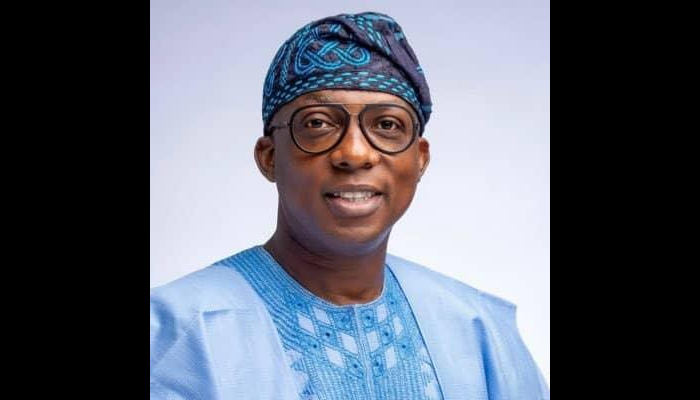Lekki Low-Carbon initiative to attract ₦120bn in green investments—Commissioner
The Lagos State government says the Lekki Low-Carbon Demonstration Zone (LLCDZ), an ambitious initiative being developed in partnership with China and local investors, will attract over ₦120 billion in green investments.
The state’s Commissioner for Environment, Tokunbo Wahab, who disclosed this, added that the initiative, which seeks to reduce carbon emissions by establishing a low-carbon zone in the Lekki Free Trade Zone (LFTZ), will also create 5,000 direct and indirect jobs, and cut carbon emissions by an estimated 200,000 tonnes annually.
The commissioner spoke at the launch of the second edition of the Subnational Climate Governance Performance Ranking (SCGPR 2.0) developed and released by the Society for Planet and Prosperity (SPP), under the leadership of Chukwumerije Okereke, a professor.
Okereke worked in collaboration with the Department of Climate Change (DCC), Federal Ministry of Environment and other development partners – the report of which was launched in Abuja on October 14, 2025 by Balarabe Abbas, the Minister of Environment.
For two consecutive years, the report has ranked Lagos as Nigeria’s best-performing state in Climate Governance, this time scoring 315 out of 360. This achievement, according to the commissioner, “is not just about numbers; it reflects years of deliberate work, strong policies, and the collective effort of every stakeholder, our agencies, partners, and the people of Lagos in advancing climate action.”
He noted that sustaining the state’s lead in the climate governance 2025 ranking is a collective triumph for all residents of the state, adding that the reanking shows how evidence-based benchmarking, such as the SCGPR, directly drives innovation, institutional reform, and service delivery.
“By continuously aligning our priorities with the ranking indicators, we have been able to focus on high-impact sectors — protecting more than three million residents in flood-prone areas, supporting over 150,000 households with cleaner energy options, and strengthening livelihood resilience across our 57 Local Government Areas (LGAs) and associated Local Council Development Areas (LCDAs),” he said.
Continuing, he assured, “our goal remains to keep Lagos at the forefront of environmental sustainability and climate resilience, while ensuring that every policy we implement improves livelihoods, reduces vulnerability, and enhances the well-being of Lagosians.
Read also: Nigeria’s manufacturing future in a low-carbon world
Over the years, Lagos has strengthened its institutional architecture by integrating climate and environmental functions across its respective Ministries, Departments, and Agencies – a policy direction which I am glad is recognised and valued in the ranking methodology.”
The commissioner disclosed that Lagos also has a dedicated Department of Climate Change and Environmental Planning where cross-sectoral actions spanning transport, energy, waste, and water are coordinated, pointing out that this institutional synergy, reinforced by insights from the ranking framework, has improved efficiency in service delivery, reducing duplication of efforts and ensuring that climate benefits reach citizens faster and at lower cost.
Through this, he said, the state has developed the Lagos Climate Adaptation and Resilience Action Plan, which includes vulnerability mapping and sectoral coordination with project pipelines. “We equally have the Lekki Low-Carbon Demonstration Zone (LLCDZ), developed in partnership with China and local investors — an ambitious innovation that seeks to reduce carbon emissions by establishing a low-carbon zone in the Lekki Free Trade Zone,” he said.
He revealed that this project alone is projected to attract over ₦120 billion in green investments, create 5,000 direct and indirect jobs, and cut carbon emissions by an estimated 200,000 tonnes annually. He added that these initiatives are not only mitigating greenhouse gas emissions, but also stimulating economic growth and creating inclusive opportunities for Lagosians.
As one of the first states to have a climate change policy and several action plans, Lagos has updated its environmental standards and legal codes, including flood-control ordinances, waste regulations, and green-building standards.
The state has also concluded its Clean Cookstove and Carbon Offset Policy and launched the first subnational carbon exchange in Africa (the second globally after Canada).
Through this platform, more than 100 small and medium-scale enterprises are expected to benefit from carbon credit trading by 2026, generating up to $15 million annually in new green income streams and enabling households to transition away from firewood and kerosene.
The commissioner noted that one of the criteria for the ranking project is climate finance and budgeting where Lagos also topped the chart, adding that, following insights from the ranking methodology, Lagos has continued to improve on its financial commitment to climate resilience, providing budget lines for urban greening, flood mitigation, and renewable energy.
“Through the state’s carbon exchange, we are targeting emissions reduction across the 20 Local Government Areas (LGAs) and 37 Local Council Development Areas (LCDAs) with ₦1 billion annual green allocations per LGA. These investments have already helped upgrade over 40 critical drainage systems, reducing flood-related losses that used to cost the state an estimated ₦45 billion yearly, while simultaneously improving water quality and public health outcomes,” the commissioner said.
Continuing, he said, “in Lagos, we translate policies and plans into measurable outcomes. We are on course with the 8 MW first-of-its-kind Floating Solar PV Plant at Lagos State University; Rooftop Solar Programme targeting 10,000 homes; and Waste-to-Wealth Initiatives that have created over 12,000 green jobs in waste recycling and resource recovery.
Collectively, these initiatives are providing cleaner electricity to educational and healthcare institutions serving more than 500,000 people, reducing dependence on diesel, and cutting annual emissions by over 50,000 tonnes of CO₂ equivalent. We are committed to effective communication that ensures the Lagos public takes ownership of climate progress. We also use social media, press briefings, and digital storytelling to convey our stories and inspire behavioural change.

